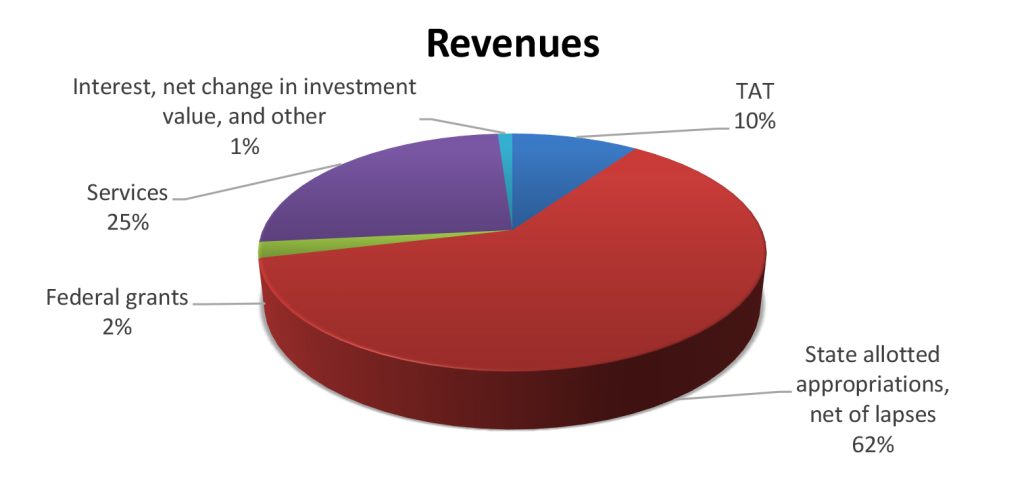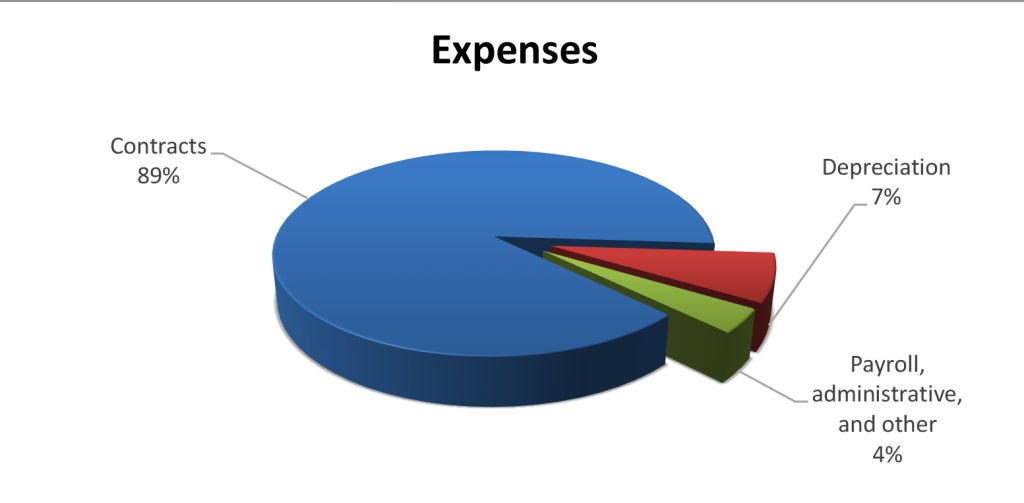Financial and Compliance Audit of the Hawai‘i Tourism Authority
Posted on Mar 25, 2025 in Summary|
AUDITOR’S SUMMARY Financial Statements, Fiscal Year Ended June 30, 2024 THE PRIMARY PURPOSE of the audit was to form an opinion on the fairness of the presentation of the financial statements for the Hawai‘i Tourism Authority, as of and for the fiscal year ended June 30, 2024, and to comply with the requirements of Title 2, U.S. Code of Federal Regulations, Part 200, Uniform Administrative Requirements, Cost Principles, and Audit Requirements for Federal Awards (Uniform Guidance), which established audit requirements for state and local governmental units that receive federal awards. The audit was conducted by Accuity LLP. Financial Highlights FOR THE FISCAL YEAR ended June 30, 2024, HTA reported total revenues of $113.9 million, along with $5 million in transfers from other state departments, and total expenses of $114.8 million. Revenues consisted of $70.1 million from state allotted appropriations, net of lapses; $2.5 million from federal grants; $11 million from TAT; $29 million from charges for services; and $1.3 million from interest and other revenues. Total expenses of $114.8 million consisted of $102 million for contracts, $8.6 million for depreciation, and $4.2 million for payroll, administrative, and other expenses. As of June 30, 2024, total assets and deferred outflows of resources of $309.1 million exceeded total liabilities and deferred inflows of resources of $24.4 million, resulting in a net position of $284.7 million. Total assets and deferred outflows of resources included (1) cash of $73.2 million, (2) land and net capital assets of $189.5 million, and (3) other assets and deferred outflows of resources of $46.4 million. Auditors’ Opinion Findings There were two material weaknesses in internal control over compliance that were required to be reported in accordance with the Uniform Guidance. A material weakness in internal control over compliance is a deficiency, or a combination of deficiencies, in internal control over compliance, such that there is a reasonable possibility that material noncompliance with a type of compliance requirement of a federal program will not be prevented or detected and corrected on a timely basis. The material weaknesses are described on pages 52-54 of the report. |
| About the Authority
The Hawai‘i Tourism Authority (HTA) was established by the 1998 Legislature to serve as the State’s lead agency for strategically managing tourism in Hawai‘i. State law requires HTA to develop a tourism marketing plan that includes statewide promotional efforts and programs, targeted markets, and other marketing efforts with measures of effectiveness and documentation of HTA’s progress toward strategic plan goals. HTA is also responsible for the Hawai‘i Convention Center. The primary source of funding for HTA’s operations is the General Fund. HTA is headed by a board of directors comprised of 12 voting |


